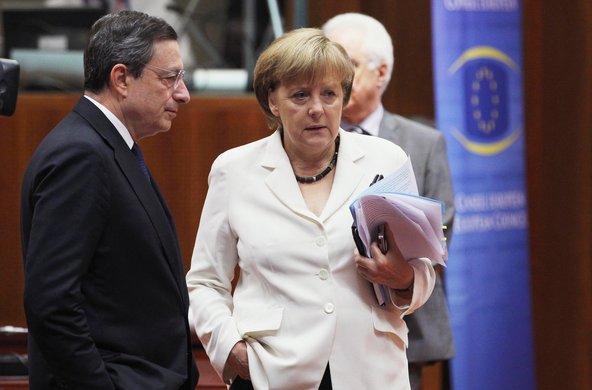LONDON — With the euro crisis still smoldering, currency unions have a pretty bad name in Europe right now. That raises an awkward question for supporters of independence for Scotland: Could Scots opt to leave Britain but keep their currency, the pound?
On Tuesday, the British chancellor of the Exchequer, George Osborne, said the answer was no and warned that Scotland would enter “unchartered waters” if it voted for independence next year. Drawing lessons from the euro zone’s continuing problems, Mr. Osborne added, London would be unlikely to agree to share the pound sterling with an independent nation that might pursue incompatible economic policies.
The pro-independence Scottish government accused him of scaremongering and published a study suggesting that sterling would continue to circulate in Scotland if the country votes yes to independence in a referendum planned for September 2014.
But the testy exchange illustrates the passions being stoked by the debate over Scotland’s future, and the extent to which economic, legal and constitutional questions remain unanswered.
Unhappily for supporters of Scottish independence, the argument is unfolding against the backdrop of recession or stagnation in the euro zone — one of the worst advertisements imaginable for the notion of a currency union.
Advocates of independence argue that if Scots vote yes next year, it would be in everyone’s interest to agree to an amicable divorce. Pragmatism will prevail and the terms under which Scotland stays within a British currency union will be quietly resolved, they say.
By contrast, opponents portray independence as a leap into the unknown. They point to the euro zone as a warning of what can go wrong if economies of differing sizes pursue divergent economic policies with a common currency.
The lesson of the euro crisis, they say, is that to keep the pound, an independent Scotland would need to adhere to rigid directives on taxation and spending, and to establish with the remainder of Britain joint structures like a banking union.
Yet doing so would negate the very point of independence, which is to bring economic decision-making from London to Edinburgh.
Wading into the controversy, Mr. Osborne argued Tuesday that a vote for independence would force Scots to confront a series of unpalatable options, including setting up their own currency, joining the euro zone, or using sterling as Panama uses the U.S. dollar.
“Let’s be clear,” Mr. Osborne told the BBC. “Abandoning current arrangements would represent a very deep dive indeed into uncharted waters.”
His comments followed the publication of a report by the Treasury in London that also warned that an independent Scotland would “have a narrower economic and fiscal base, and be exposed to a number of volatile sectors such as finance and energy (including North Sea oil and gas).”
A separate report, commissioned by the Scottish government, considered the options of keeping sterling, joining the euro, having a Scottish currency pegged to sterling, or having a currency that was fully flexible.
While it said that Scotland “could choose any of these options and be a successful independent country,” the report recommended retaining sterling as part of a formal monetary union.
The Scottish finance secretary, John Swinney, said the Treasury was “playing with fire” by deploying arguments that implied that Scotland would no longer be able to use sterling if it voted for independence.
Mr. Osborne’s comments and the Treasury report were the latest in a string of veiled warnings from London on the repercussions of Scottish independence.
In February, the British government released the text of a legal opinion holding that Scotland would have to renegotiate membership in the European Union and other international organizations if it voted for independence in a referendum next year.
Last month, the defense secretary, Philip Hammond, warned that an independent Scotland would be hard pressed to defend itself with its share of the Royal Navy: one frigate and a handful of aircraft.
Article source: http://www.nytimes.com/2013/04/24/business/global/scottish-independence-would-mean-loss-of-pound-osborne-warns.html?partner=rss&emc=rss

